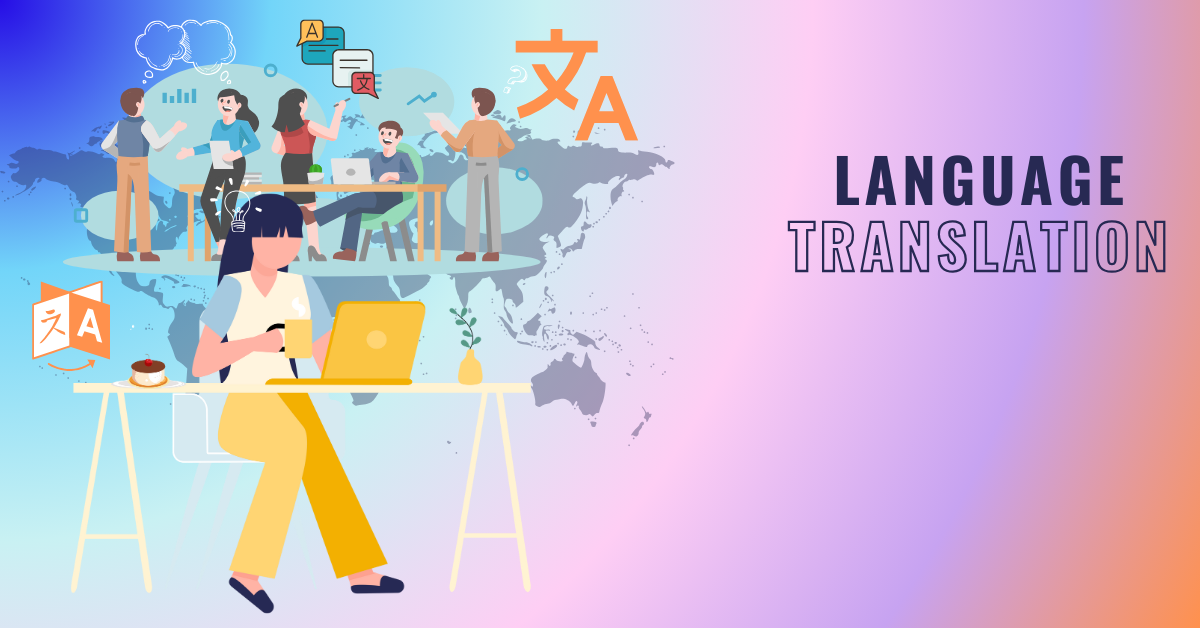
Language in Translation: Bridging Cultures and Expanding Horizons
It is more important than ever to be able
to communicate effectively across languages in today's globally linked world.
Whether your company is a small business owner reaching out to different local
communities, multinational organizations wanting to enter new markets, or
anyone negotiating a globalized environment, the value of language in
translation cannot be underscored.
This blog post explores the value of
language in translation, the reasons behind its vital nature, the advantages it
provides, and how to choose the appropriate translating agency for your
requirements.
Why You Need Language in Translation
Global Market Access: Geographic restrictions no longer define business possibilities in
the digital age. Still, language hurdles can be really difficult. Investing in
an excellent language of translation will help you to properly present your
goods or services to a worldwide audience.
Legal and Regulatory Compliance: Following local laws and rules is critical when you operate in
several nations or areas. Legal document, contract, and compliance material
accurate translation guarantees that you satisfy all the criteria and steer
clear of possible legal potholes.
Cultural Sensitivity: Translation in language permeates society rather extensively.
Beyond exact word-for-conversion, good translation catches idioms, cultural
references, and subtleties. Developing rapport and confidence with your target
audience depends on this cultural awareness.
User Experience: Translation
in languages makes it easy for users to use specific apps, software and web
portals. Engaging the content in their native language increases user’s
satisfaction and engagement.
Knowledge Sharing: Sharing of knowledge is essentially important in the field of
science, tech and health. If the information does not pass due to language
issues, then it hinders its benefits. Thus, language of translation is
essential for information exchange and collaboration.
Competitive Advantage: When you offer your products and services in the language of your
users, you open the wide possibility of gaining more revenue and profits. You
can outbid your competitors and advance your growth in the unrealised markets.
Advantages Of Translation in language
Boost in Revenue: When you broadcast your products in different languages, you open up
various revenue streams. Research have time and again shown that it is easier
for a consumer to purchase a product if the information is in their native
language.
Improved Client Relationship: When you use the client’s native language for consulting or
interacting, they are more prone to listen to you. Your willingness to interact
in their local language demonstrates that you respect their culture and
language.
Brand Consistency: Translation in language ensures that your marketing remains at the
top front of the user’s consciousness. Marketing in the consumers language will
boost your brand longevity.
Reduced Risk:
Translation of crucial documents such as contracts, guidelines and safety
instructions mitigate the risk of miscommunication or being sued.
Efficiency in Operations: For global businesses, having well-translated documents and messages
can help increase cooperation and efficiency among several branches or
departments.
Cultural Intelligence: Translation in language often offers insights into many cultures,
therefore enabling companies and people to grow more culturally intelligent and
flexible.
How to Hire Language Translation Services
Assess your needs: Think about the languages you require, the kind of material you
want translated, and any industry-specific jargon.
Search for experience: Look for translators with background in your sector or field.
Translators from your industry will be more likely to grasp technical
vocabulary and context.
Review credentials: Search for agencies licensed by reputable industry authorities or
certified translators. This guarantees a given degree of professionalism and
excellence.
Native speakers: Choose translators who are natural speakers of the target language
wherever at all practicable. They sometimes grasp linguistic subtleties and
cultural background more deeply.
Examine samples: Request samples of past work, particularly if they have completed
projects akin to yours. This helps you to sense their quality and elegance.
Consider technology: Modern tools and artificial intelligence-assisted translating are
used by many professional translating firms. These technologies are being used
for big projects, which might help to increase uniformity and efficiency.
Quality assurance: Ask about their systems of quality assurance. Usually, good
translation services include proofreading and editing.
Confidentiality: Make sure the service has strong policies in place for keeping
your private information secure.
Turnaround time and scalability: Enquire how they are going to take into account their ability to
manage your workload and meet your deadlines.
Customer Service: Excellent communication is really vital. Select a provider that is
eager to answer your enquiries or worries.
Translation in language is ultimately more
than just a means of communication. It’s a link between civilisations, a key to
fresh chances, and a driver of world understanding. Investing in quality
translation services will open new markets, improve the worldwide visibility of
your business, and create close relationships across linguistic and cultural
borders. The ability of translation in language to unify, inform, and inspire
cannot be undervalued in our varied and interconnected society.



